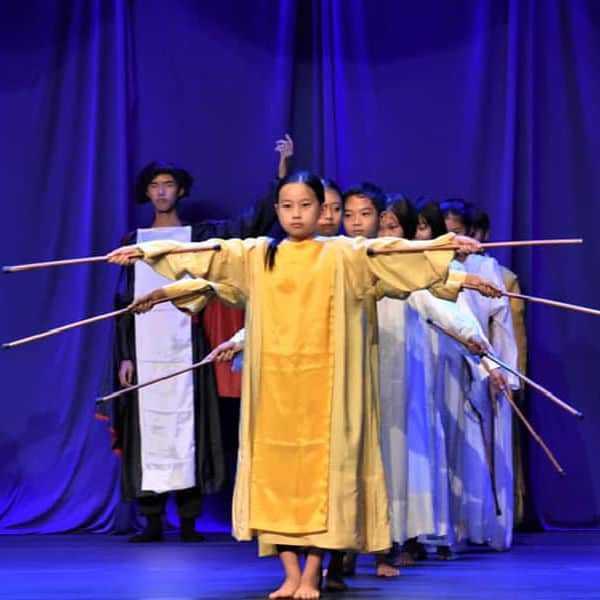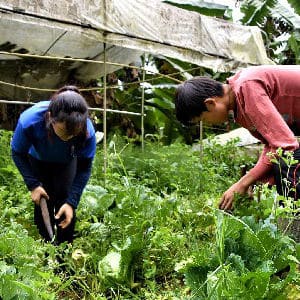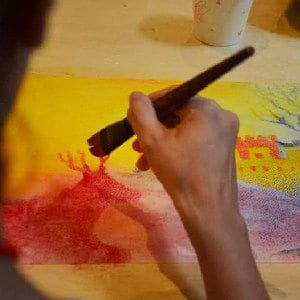Close
A rich festival culture is one of the central features of Waldorf school life. Festivals provide nourishment to the individual and bring the community together in a mood of reverence and a celebration, whether it be the first day of school for the new Class One or the festival of Deepawali.
Eurythmy is an expressive movement art used to make music and speech visible in artistic form. It also has benefits in assisting children with physical integration and coordination and it is used in Waldorf education to awaken and strengthen the expressive capacities of children through movement.
Wet-on-wet watercolour painting is one of the most distinctive features of the Waldorf junior school. But why Wet-on-Wet? The intent is to stimulate in young children their sense of aesthetic responsiveness and sensitivity through an experience of colour, not form. Because the wet paint is laid on wet paper, the colours flow, blending into one another in beautiful, unexpected ways.
Our recognized commitment to environmental sustainability and outdoor education enables our students to develop a sense of reverence and an appreciation of the natural world in all its complexity. There is no better means for this than through our Outdoor Classroom and Environmental camps programmes through which students gain hands-on learning experiences in an integrated curriculum context.
Plays in Waldorf schools are called pedagogical dramas for a very good reason. They are aids to the teachers in developing skill and capacity in students and a source of direct and vital experience. Drama productions strengthen the students’ inner resourcefulness and their ability to engage co-creatively towards a cohesive aim while the positive transformative effects of drama, particularly in adolescence, are well researched.



STAY IN THE KNOW ON OUR LATEST NEWS